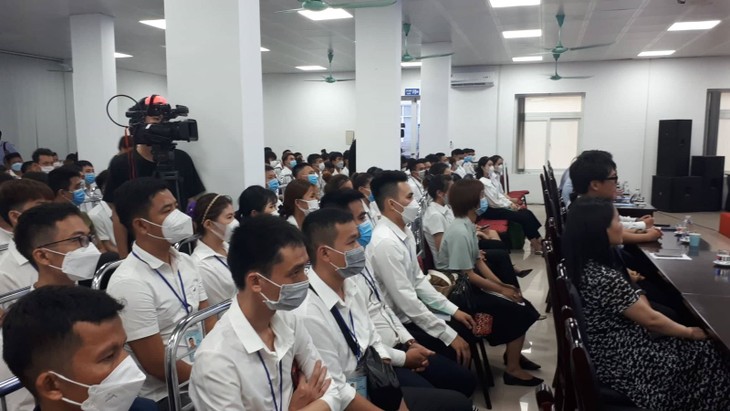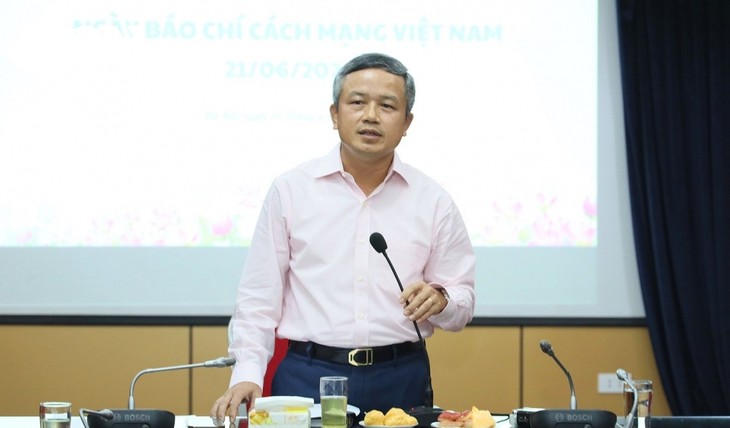(VOVWORLD) - In the first half of 2024, Vietnam sent more than 78,000 workers to work under contract abroad. The number accounts for nearly 62.5% of the 2024 plan set by the Ministry of Labour, Invalids, and Social Affairs.
 Workers are informed of immigration policies and working conditions before working in South Korea. (photo: baotintuc.vn) Workers are informed of immigration policies and working conditions before working in South Korea. (photo: baotintuc.vn) |
According to the Department of Overseas Labour of the Ministry of Labour, Invalids and Social Affairs, over 78,000 workers had been sent to work abroad under contract as of June 19, including nearly 24,000 female workers. Japan remains the biggest market for Vietnamese workers, recruiting more than 40,000 people in the reviewed period. It’s followed by Taiwan (China) with more than 27,000 workers and South Korea with 5,500 workers.
Pham Viet Huong, Deputy Director of the Department of Overseas Labour, said: “In addition to the three markets of Japan, South Korea, and Taiwan (China), which account for a high proportion of over 90%, we are expanding to other markets, especially countries in Europe, such as Germany, Romania, and Hungary. Countries that have an aging population tend to accept foreign workers, especially Vietnamese workers.”
 Pham Viet Huong, Deputy Director of the Department of Overseas Labour (photo: VOV) Pham Viet Huong, Deputy Director of the Department of Overseas Labour (photo: VOV) |
In March, Deputy Minister of Labour, Invalids, and Social Affairs, Nguyen Ba Hoan and Australian Ambassador to Vietnam Andrew Goledzinowski signed an implementation plan for the MoU between the two governments to send Vietnamese workers to work in the agricultural sector in Australia, under which 1,000 Vietnamese workers will go to work in Australia this year.
In June the Center for Overseas Workers of the Ministry of Labour, Invalids, and Social Affairs signed an agreement with Japan’s Osaka Medical Care Association to send intern trainees in the nursing profession to Japan.
Dang Huy Hong , Director of the Center for Overseas Workers, said: “Workers participating in the program have all expenses paid by the Osaka Medical Care Association, such as learning Japanese in Vietnam from 8 to 11 months to reach N4 level, fees to take the Japanese language proficiency test, visa application fees, health examination costs, and two-way air tickets. So workers participating in the program don’t have to pay any cost, including expenses for training.”
In order to fulfill this year’s target of sending 125,000 workers to work under contract abroad, Vietnam has implemented several solutions to improve worker quality and issued certificates of profession, language, and other necessary qualifications.